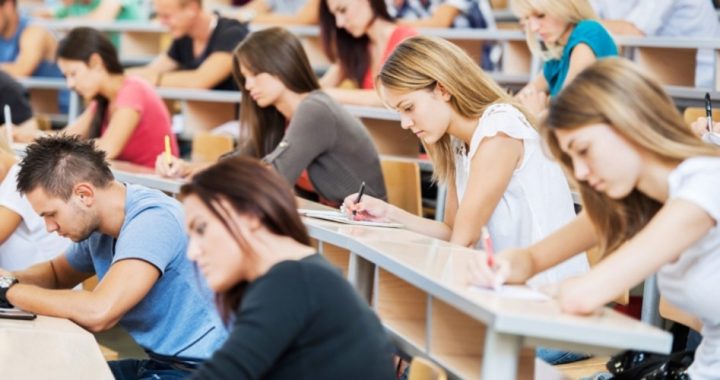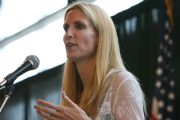
snowflake
NOUN
…2. derogatory, informal An overly sensitive or easily offended person, or one who believes they are entitled to special treatment on account of their supposedly unique characteristics. — Oxford English Dictionary
Is being a snowflake a disability? This is apparently the case at (pseudo)elite U.S. colleges, where up to one in four students are classified as “disabled” — often simply because they experience “stress and anxiety” — and are thus given special accommodations. This can sometimes mean getting twice as long as their peers to take exams.
Disabled classifications have skyrocketed in recent years, with only a doctor’s note necessary to be given the status (and then federal law dictates the person must be accommodated). At Pomona College in California, for instance, five percent of students fell into the category in 2014 — now 22 percent are classified as disabled.
This merely reflects other private colleges. As the Wall Street Journal reports, “At Hampshire, Amherst and Smith colleges in Massachusetts and Yeshiva University in New York, one in five students are classified as disabled. At Oberlin College in Ohio, it is one in four. At Marlboro College in Vermont, it is one in three.”
A 33-percent mentally disabled rate at an institution sounds unbelievable — unless it’s a mental institution. What’s actually occurring, however, is that what used to be called sins or normal human weaknesses are now being diagnosed as “disorders” of the mind, and many students do subscribe to this thinking. As late Helter Skelter mass killer Charles Manson put it when asked if he was crazy, “You know, a long time ago being crazy meant something. Nowadays everybody’s crazy” — or pretends to be.
This brings us to the second factor: Seeing others get breaks, some students realize that they also can advantage themselves by claiming disabled status.
This isn’t to minimize bona fide problems certain people endure. For example, not all the “disabilities” are psychological, and we could understand why a blind student would be given certain accommodations. Yet more common is what one Pomona official alludes to. As the Journal also informs, “‘At Pomona, we have extremely talented bright students with very high expectations who are coming in with a good level of anxiety and are highly stressed,’ says Jan Collins-Eaglin, the Claremont, Calif., college’s associate dean of students for personal success and wellness. ‘Our job here is to help them really thrive.’”
That certainly is Eaglin’s job because if she doesn’t find enough “stressed” students, she’s out of a job and won’t thrive. But one’s degree of anxiety and stress is largely determined by world view and attitude. For example, a spiritual person convinced that everything is in God’s hands and that the main goal in life is achieving holiness will be unlikely to pull his hair out over a test. But a worldly individual who fancies academic and career success the end-all and be-all may end up bald (so to speak).
Regardless, there was a time when we called such a reaction to stress an “inability to cope.” But now students’ coping mechanisms are provided by colleges. The Journal again: “The rise in disability notes for mental-health issues has led to a surge in the number of students who take their exams in low-distraction testing centers, are allowed to get up and walk around during class or bring a comfort animal to school, among other measures.” The latter can, again, include being given twice as long to take exams.
But being able to perform “under pressure” is integral to much in life. It separates the champions from the also-rans in sports. And do you want to be tended to by a doctor who needs twice as long to perform a life-saving procedure, defended by a lawyer who needs twice as long to formulate a good answer in court, or fly with a pilot who needs twice as long to land the aircraft?
Unsurprisingly, this disability indulging is largely a phenomenon of the rich. As the Journal also tells us, “Among the 100 four-year, not-for-profit colleges with the highest percentage of disabled students, 93 are private.” Yet public schools are not immune, as from “2011 to 2016, the number of students with special accommodations increased by an average of 71% among 22 flagship state schools,” the paper also relates.
Some academics are critical of this phenomenon. Ari Trachtenberg, a professor of electrical and computer engineering at Boston University, asks a Captain Obvious question: “If you grade on a curve, does it disadvantage the rest of the class?” Miriam Kurtzig Freedman, an attorney who has represented government schools in special-education and disability law, points out that the tests are rendered useless if they’re not standardized. It’s like using 100-meter dash times to determine your nation’s most fleet of foot, but then giving a quarter of the competitors a 20-meter head start. How can you then have any idea who should be on the Olympic team?
In fact, schools go to ridiculous lengths to accommodate students. The University of Minnesota, for instance, administered 9,681 tests to students requiring extra time or those “low-distraction environments” — double the number in 2013. Not only has this made it necessary for staff to relinquish their offices for the “disabled” test takers, but during the past year the school actually had to rent 10,000 square feet of space at a local hotel for them.
So are we becoming Snowflake Nation? The Journal provides the example of Lila Manstein, who double-majored in chemistry and math and was given 50 percent more time on tests “because she was diagnosed with reading-comprehension difficulties and Attention Deficit Disorder”; the paper also quotes Monique Burgdorf, the assistant dean of students and interim director of disability resources at Oberlin, as saying, “If I have anxiety and get panic attacks during exams, extended time will give me a chance to check in with myself and calm myself down.” She says that barring this, these students wouldn’t graduate.
But maybe they shouldn’t. The mentality driving this accommodation phenomenon is clear: “I have this problem through no fault of my own, so why should I suffer because of it?” Upholding standards isn’t a punishment, however, but reflects a simple rule: Certain things disqualify us from doing certain things.
All of us have limitations. A blind person can’t pilot an airplane, someone with a 65 IQ can’t be a nuclear physicist, a man without legs can’t be an ATP tennis player, a deaf woman probably can’t be a piano tuner, and we all lack certain gifts necessary for great proficiency in given endeavors. As for Miss Manstein, reading comprehension was always tested and influenced academic success. And if she becomes a chemist, won’t she have to read and comprehend scientific journals?
This disability-over-meritocracy craze not only threatens to diminish the quality of future goods and services, but also our international competitiveness. After all, the Chinese already produce 10 times as many scientists as we do, and you can bet they’re not coddling students with “safe spaces,” low-distraction-environment rooms, and comfort animals.
Photo: skynesher/Vetta/Getty Images



